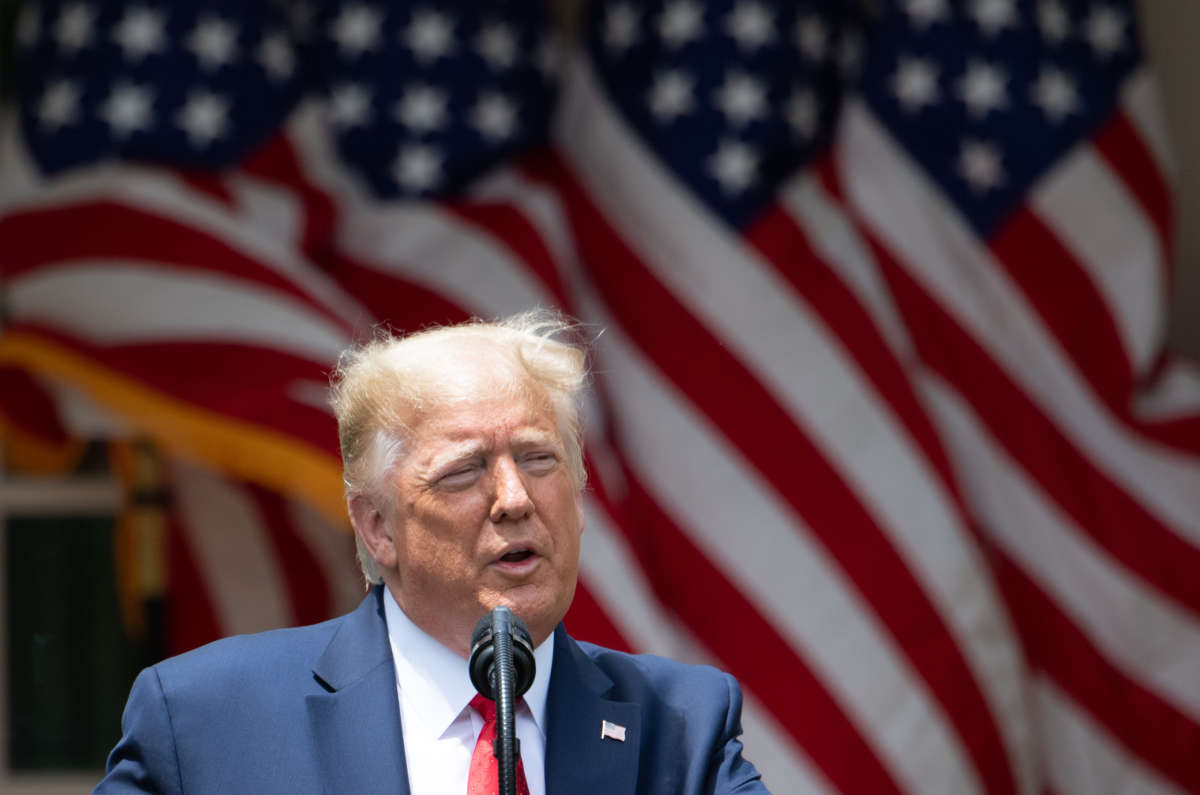A coalition of civil rights groups including the ACLU sued the Trump administration on Tuesday for denying coronavirus relief loans to small business owners with criminal records, arguing the restrictive policy violates the law and perpetuates systemic racial injustices by discriminating against people of color.
“The excluded small business owners are more likely to be Black and Latinx because of bias in our criminal legal system, and their communities are hardest hit by Covid-19,” ReNika Moore, director of the ACLU’s Racial Justice Program, said in a statement. “We won’t stop fighting until this economic lifeline is afforded to all.”
The Small Business Administration (SBA) and the Treasury Department initially barred any small business owner convicted of a felony within the past five years from receiving loans under the Paycheck Protection Program (PPP), which was established by the CARES Act.
The SBA slightly loosened the restrictions last week, banning from relief loans anyone who is currently on parole, facing pending charges, or with a felony conviction in the past year.
In their legal complaint against the SBA, the civil rights groups argue that “the criminal-record exclusions are inconsistent with the text and purpose of the CARES Act.”
“They tell a sweeping category of small-business owners across the country that, at a time of acute financial fragility, there is no lifeline for them or their employees,” the complaint reads.
Sekwan Merritt, a black small business owner who is on parole, said in a statement that “the SBA’s discrimination against formerly incarcerated individuals hurts not just those of us who have worked hard to create our own businesses after returning home, but also impacts our families, the people who work for us, and our communities.”
“Through my electrical contracting business, Lightning Electric, I want to provide hope and opportunity for folks who were formerly incarcerated,” said Merritt. “However, as it stands, the SBA blocks the path to economic equality and progress for people who come from underserved communities and who are disproportionately affected by mass incarceration.”
Joanna Wasik, counsel at Washington Lawyers’ Committee for Civil Rights and Urban Affairs, said the United States should “celebrate the accomplishments of formerly incarcerated individuals who are contributing to their communities, not shut them out from aid at a time of acute financial crisis.”
“The SBA’s exclusion compounds the already devastating impacts that communities of color are facing from the Covid-19 pandemic Congress did not provide any exclusions when it passed the CARES Act,” said Wasik, “and the SBA has provided no good reason for them.”
Correction: A previous version of this story erroneously stated that Sekwan Merritt has a pending charge against him. Sekwan Merritt is on parole, he does not have a pending charge.
Join us in defending the truth before it’s too late
The future of independent journalism is uncertain, and the consequences of losing it are too grave to ignore. To ensure Truthout remains safe, strong, and free, we need to raise $46,000 in the next 7 days. Every dollar raised goes directly toward the costs of producing news you can trust.
Please give what you can — because by supporting us with a tax-deductible donation, you’re not just preserving a source of news, you’re helping to safeguard what’s left of our democracy.
